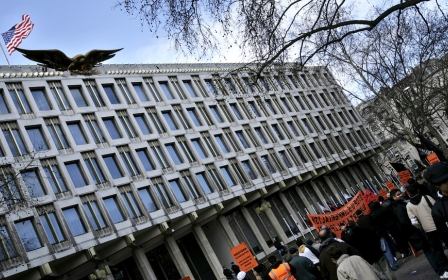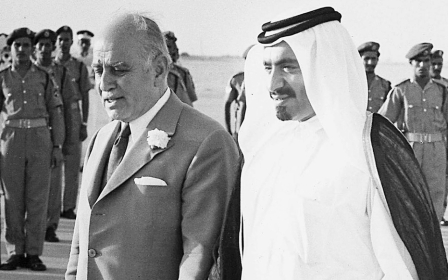Qatar blocks English-language website Doha News

Qatar has blocked access to local English-language news website Doha News, in what its editors said appeared to be a deliberate "act of censorship".
DohaNews, which was read widely by the English speaking migrant community in Qatar, said in statement on Thursday that it had been "deliberately targeted and blocked by Qatar authorities", and that it had not been told why.
There has been no official statement from authorities confirming or denying the move, which is considered a blow to media freedom.
“We are incredibly disappointed with this decision, which appears to be an act of censorship," the statement said.
"We believe strongly in the importance of a free press, and are saddened that Qatar, home of the Doha Center for Media Freedom and Al Jazeera, has decided to take this step."
The website was defended and criticised on Twitter after it was blocked.
Translation: It’s an unprofessional website, that is biased against Qatar, and it has become a source of news for all foreign media to attack Qatar and feed them (with news) that makes us look bad.
Translation: I’m against the website’s content, but I’m also against banning it inside Qatar, when its content is available everywhere else around the world. You just closed your eyes basically.
The Doha News team said local authorities had not raised any concerns or issued any warnings against them.
“Qatar has never been an easy place to report in, but authorities have never stopped us before,’’ Shabina Khatri, executive editor and co-founder of Doha News told Middle East Eye.
She added it wasn’t clear whether one of their stories sparked the move, or a series of stories and reporting style.
“We have run a lot of stories lately that raised hackles," she said.
“Our team of professional journalists has always aimed to draw the community together by informing and engaging them, and sparking debate on important issues,” the website's statement said.
“(Our audience) also know that we do not shrink from asking difficult questions to those in power, something other news outlets in Qatar often fail to do.”
This is not the first time Qatari authorities have targeted media. In 2015, foreign journalists reporting on the living conditions of migrant workers in Qatar were briefly detained by police forces, including BBC journalist, Mark Lobel and German broadcast journalist Florian Bauer, who were arrested in May.
Qatar’s communications office said Lobel had “trespassed on private property” while trying to "break in" to a workers' camp.
Access denied
Most readers in Qatar have not had access to the English website since yesterday, as both of Qatar’s internet service providers, Ooredoo and Vodafone, simultaneously blocked the URL.
Exceptions included access to a virtual private network or unfiltered corporate internet, according to the statement.
Readers were temporarily diverted from dohanews.co to another domain name, doha.new, which was subsequently blocked.
Khatri said that they could work around the block and publish their content on social media or Medium, but they haven’t decided whether they will resort to that or not, in hope that the website will be unblocked.
“The ubiquitous nature of the internet makes it impossible to hide when decisions are not transparent. We hope that the Qatari authorities will reconsider their decision and unblock our site,” the statement said.
The prominent website has been operational since 2011, and serves one million users a month out of a 2.6 million population, according to Doha News.
As Qatar races to complete major projects in preparation to host the 2022 World Cup, it has been under fire for human rights violations against migrant workers. The Gulf country has been striving to improve its image.
New MEE newsletter: Jerusalem Dispatch
Sign up to get the latest insights and analysis on Israel-Palestine, alongside Turkey Unpacked and other MEE newsletters
Middle East Eye delivers independent and unrivalled coverage and analysis of the Middle East, North Africa and beyond. To learn more about republishing this content and the associated fees, please fill out this form. More about MEE can be found here.




